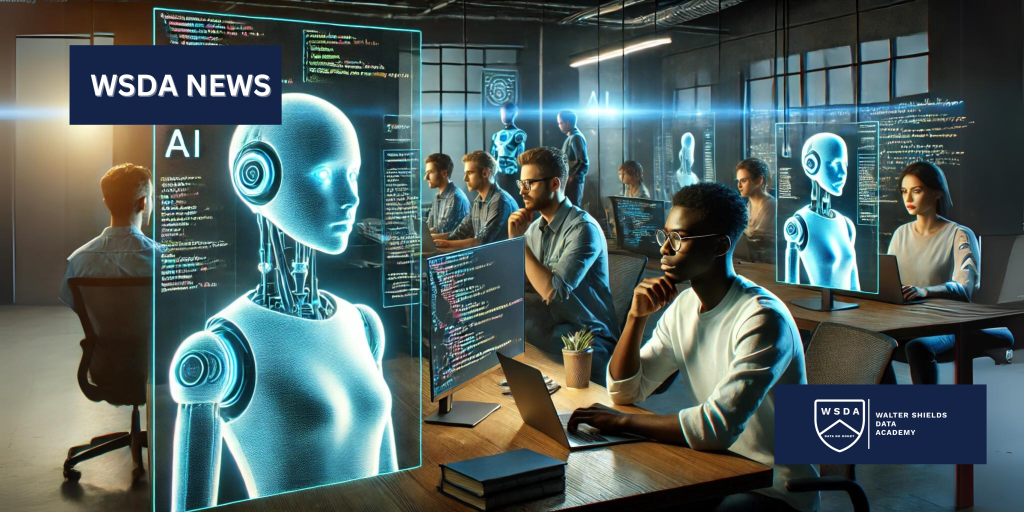Will AI Coding Tools Replace Junior Developers?

The Future of Software Development: How AI is Shaping Coding Teams
The world of software development is evolving at a rapid pace, driven by advancements in artificial intelligence (AI) coding assistants. These powerful tools are not only changing how developers work but also reshaping the structure of development teams. This shift presents both challenges and opportunities, particularly for professionals at various stages in their careers. Here’s a closer look at how AI is transforming coding and what it means for aspiring and seasoned developers alike.
AI’s Expanding Role in Development Teams
AI coding tools, like GitHub’s Copilot and OpenAI’s Codex, have become integral to many organizations, automating tasks that once required manual effort. These tools are growing more proficient at writing code, debugging, and even handling repetitive tasks like syntax corrections. As a result, tech leaders are rethinking team dynamics, emphasizing roles for experienced developers who can manage and refine AI-generated code. While this may reduce demand for entry-level coding roles, it offers an opportunity to optimize workflows, freeing up senior developers to focus on more strategic challenges.
The Evolving Role of Developers: From Coder to Curator
In this AI-driven landscape, developers are transitioning from hands-on coding to more editorial roles. Rather than writing code line by line, developers now act as curators, guiding AI to produce high-quality code that meets specific project goals. This shift means developers must deepen their understanding of business objectives and strategic needs, allowing them to ensure that AI-generated solutions align with long-term company goals. It’s less about the “how” of coding and more about the “why” behind it, blending technical know-how with business insights.
Reimagining the Composition of Development Teams
Looking to the future, we can expect development teams to consist of a mix of senior developers, AI specialists, and UX designers. These teams will leverage AI not only for coding but for broader tasks such as code reviews, security audits, and compliance checks. AI will handle the bulk of repetitive coding tasks, while human experts will concentrate on high-level strategy, design, and system architecture. The collaboration between humans and AI can significantly enhance productivity, but it will require teams to adapt and embrace continuous learning.
Widespread Adoption and Its Impact
AI coding tools are already widely adopted across industries. For instance, GitHub’s Copilot has seen massive uptake, signaling that businesses are quickly integrating AI into their day-to-day operations. A study by Forrester predicts that AI-based coding tools could boost productivity by 30% in the next few years. However, with this increased reliance on AI comes concerns about the potential for skill obsolescence, especially for junior developers. To remain competitive, professionals need to upskill, focusing on areas where human judgment and creativity are irreplaceable.
Finding the Balance Between AI and Human Expertise
AI can enhance efficiency, but its integration must be handled with care. Over-reliance on AI could lead to blind spots, where critical nuances are missed, especially in areas like ethics, security, and compliance. To mitigate this, human oversight remains crucial. Experienced developers play an essential role in reviewing and refining AI-generated code, ensuring that the output is both accurate and aligned with organizational standards. Businesses that successfully balance AI with human expertise will likely lead the way in innovation.
Navigating the Transition: Adapting to the AI-Powered Future
For those entering or advancing in the fields of data science, data analytics, and AI, the key to success lies in adaptability. Learning to work alongside AI tools is no longer optional—it’s essential. Professionals should focus on developing skills in AI supervision, data interpretation, and strategic thinking. Additionally, organizations must invest in training programs to help teams embrace AI tools while fostering a culture of continuous improvement and upskilling.
Conclusion: Seizing Opportunities in an AI-Driven World
The AI revolution in software development is still in its early stages, but the impact is undeniable. By integrating AI into coding practices, development teams can unlock new levels of creativity and efficiency. For those willing to adapt, there’s a wealth of opportunity. Staying informed about the latest trends and actively seeking to expand your skill set will be critical to thriving in this rapidly evolving landscape. As we move forward, the future of software development will be defined by a harmonious blend of human ingenuity and AI-driven innovation.
Data No Doubt! Check out WSDALearning.ai and start learning Data Analytics and Data Science Today!

